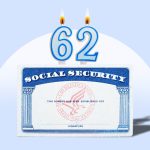For many retirees, the idea of selling their home for cash holds serious appeal. Quick closings, no repairs, and instant liquidity seem like the perfect solution, especially for seniors looking to simplify their lives or cover unexpected expenses.
But what appears to be a hassle-free transaction on the surface often hides significant financial risks beneath it. In fact, rushing into a cash home sale during retirement could end up causing more harm than good.
Here’s why selling your home for cash could backfire in retirement, and what you should carefully consider before making this major decision.
Why Selling Your Home for Cash Could Backfire in Retirement
The Illusion of Convenience Masks Lower Offers
Cash buyers, whether individual investors, real estate wholesalers, or companies, typically offer one major hook: speed. They promise to buy homes quickly, often closing within days and purchasing properties “as-is,” meaning sellers don’t have to invest in repairs or deal with showings.
However, this convenience comes at a steep price. Cash offers are almost always significantly below market value, sometimes 20% to 50% less than what you’d get through a traditional listing.
While it might seem worth it to avoid the hassle of selling, retirees who accept these lowball offers may unknowingly walk away from tens or even hundreds of thousands of dollars—money they may later need for healthcare, housing, or daily expenses during retirement. In many cases, this one-time convenience can end up sabotaging long-term financial stability.
Losing a Key Source of Retirement Security
For many older adults, their home represents their largest financial asset. Selling it for less than it’s worth strips away a crucial safety net.
Home equity can play a vital role in retirement planning, offering a cushion for unexpected medical bills, long-term care needs, or future housing transitions. By taking a lowball cash offer, retirees risk cutting themselves off from that equity prematurely.
What’s more, proceeds from a quick cash sale may seem substantial at first, but once the funds are used to pay off debts or cover immediate expenses, many retirees find themselves left with little long-term financial protection, especially if they’ve also lost their primary residence.
Higher Likelihood of Scams Targeting Seniors
Cash-for-home transactions are often marketed aggressively to older adults. Unfortunately, this has made seniors prime targets for real estate scams and predatory buyers.
Some common warning signs include:
- Unsolicited phone calls or mailings offering to buy your home
- High-pressure tactics urging you to “act fast”
- Complex contracts with confusing fine print
- Buyers who refuse to provide full financial disclosures
In many cases, these buyers count on seniors feeling overwhelmed by home maintenance or financial pressures, making them more susceptible to risky deals. Even legitimate cash buyers often use tactics designed to make their offer sound better than it is, preying on fear and urgency to rush the sale process.

Limited Housing Options After the Sale
Many retirees who sell their homes for cash underestimate how difficult it can be to find suitable, affordable housing afterward, especially if they’re downsizing into a tight rental market.
Selling quickly for cash means you may not have enough time to carefully evaluate your next move. You could be forced into costly rental arrangements, temporary housing, or even senior communities with unexpected fees.
Additionally, cash sale proceeds may not stretch as far as expected, particularly if the sale price is below market value. This leaves many retirees paying higher housing costs going forward, erasing the short-term benefit of the cash sale.
Tax Consequences That Catch Sellers Off Guard
Selling your home, even for cash, can trigger unexpected tax consequences—something many retirees overlook in the rush to close quickly. While the IRS allows many homeowners to exclude up to $250,000 (or $500,000 for married couples) in capital gains on a primary residence, those who’ve owned their home for decades may still face taxable gains depending on their cost basis and sale price.
Additionally, selling a home could impact eligibility for certain state or federal assistance programs, such as Medicaid, which takes assets into account for long-term care coverage. The sudden influx of cash could disqualify you from benefits you may need down the line.
Without thorough tax planning and advice from a financial professional, retirees could face penalties or unexpected tax bills that significantly reduce their net proceeds from the sale.
Emotional Costs and Loss of Community
Financial consequences aside, many retirees who sell their homes for cash underestimate the emotional toll. Leaving a long-time home abruptly can cause feelings of regret, disorientation, and loneliness, especially if the move severs ties to close friends or familiar neighborhoods.
Quick cash sales often don’t allow time for a thoughtful transition. Retirees may end up regretting their decision once the dust settles and they realize they acted out of urgency or fear.
Emotional well-being is just as critical as financial security in retirement, and an abrupt sale can jeopardize both if not approached with care and planning.
Why Selling Your Home for Cash in Retirement Can Backfire and What to Do Instead
Selling your home for cash may seem like an easy answer to complex problems, but for retirees, it can be a risky move with lasting financial, emotional, and logistical consequences.
From leaving thousands on the table and triggering unexpected taxes to falling victim to scams or losing long-term housing security, the dangers are real. While cash offers provide speed, they often come at the cost of your future stability and peace of mind.
If you’re considering selling your home in retirement, consult with a trusted real estate professional, financial advisor, or elder law attorney before making any decisions. You may discover better options, like listing your home traditionally, downsizing thoughtfully, or tapping into home equity through safer methods such as a reverse mortgage or line of credit.
Have you or someone you know considered selling a home for cash in retirement? What factors influenced your decision, and would you do it differently?
Read More:
7 Retirement Dreams That Crumble Because of Local Zoning Laws
9 Loopholes That Could Save Retirees Thousands—If They Dare Use Them
Read the full article here














